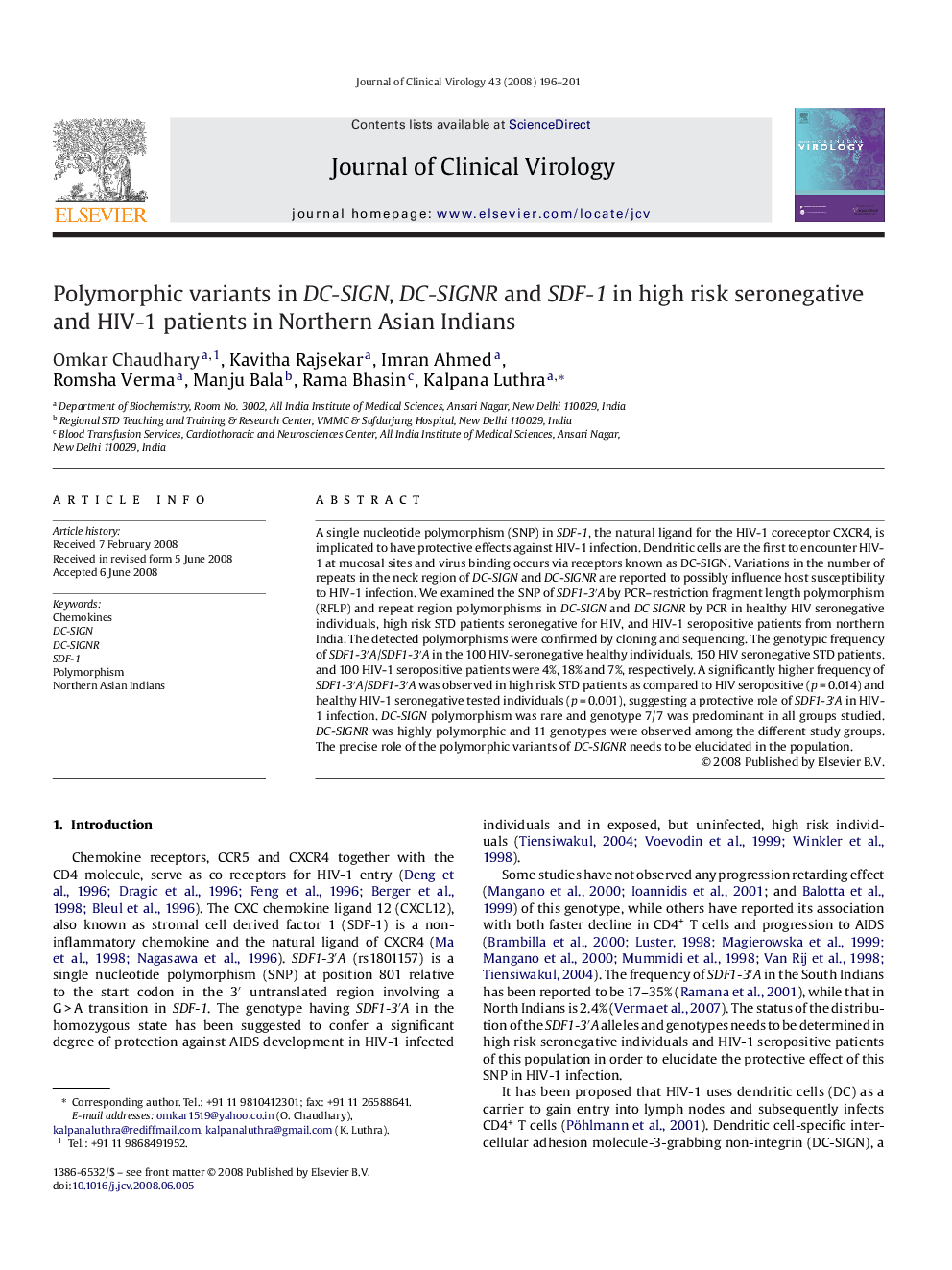| Article ID | Journal | Published Year | Pages | File Type |
|---|---|---|---|---|
| 3370545 | Journal of Clinical Virology | 2008 | 6 Pages |
A single nucleotide polymorphism (SNP) in SDF-1, the natural ligand for the HIV-1 coreceptor CXCR4, is implicated to have protective effects against HIV-1 infection. Dendritic cells are the first to encounter HIV-1 at mucosal sites and virus binding occurs via receptors known as DC-SIGN. Variations in the number of repeats in the neck region of DC-SIGN and DC-SIGNR are reported to possibly influence host susceptibility to HIV-1 infection. We examined the SNP of SDF1-3′A by PCR–restriction fragment length polymorphism (RFLP) and repeat region polymorphisms in DC-SIGN and DC SIGNR by PCR in healthy HIV seronegative individuals, high risk STD patients seronegative for HIV, and HIV-1 seropositive patients from northern India. The detected polymorphisms were confirmed by cloning and sequencing. The genotypic frequency of SDF1-3′A/SDF1-3′A in the 100 HIV-seronegative healthy individuals, 150 HIV seronegative STD patients, and 100 HIV-1 seropositive patients were 4%, 18% and 7%, respectively. A significantly higher frequency of SDF1-3′A/SDF1-3′A was observed in high risk STD patients as compared to HIV seropositive (p = 0.014) and healthy HIV-1 seronegative tested individuals (p = 0.001), suggesting a protective role of SDF1-3′A in HIV-1 infection. DC-SIGN polymorphism was rare and genotype 7/7 was predominant in all groups studied. DC-SIGNR was highly polymorphic and 11 genotypes were observed among the different study groups. The precise role of the polymorphic variants of DC-SIGNR needs to be elucidated in the population.
